The best retinol alternatives for your skin
Select independently determines what we cover and recommend. When you buy through our links, we may earn a commission. Learn more.
If you have even a small interest in skin care, you’ve likely heard about the benefits of retinol. Research indicates that it has the ability to reduce the appearance of lines and wrinkles, fight acne and fade dark spots. Because of this, it’s often used in night creams, serums and more.
But just because it may help with various skin concerns, retinol (a form of vitamin A) is not necessarily for everyone. “Those with sensitive or rosacea-prone skin may want to avoid retinol products because there is a potential risk of irritation,” said Dr. Marisa Garshick, a board-certified dermatologist. This is because retinol is essentially a form of vitamin A that ultimately gets converted into an acid. It is because of this that retinol can help cell turnover to increase. “But this process can also lead to redness, peeling and irritation in those with sensitive skin,” said Dr. Rebecca Marcus, a board-certified dermatologist.
SKIP AHEAD How to shop for retinol alternatives | How should you use retinol alternatives?
Those with sensitive skin aren’t the only people who are advised to skip retinol. “They should also be avoided during pregnancy or while breastfeeding,” said Dr. Howard Murad, a trained pharmacist and physician and founder of Murad Skincare. This is because retinol increases the levels of vitamin A in the body, potentially resulting in fetal retinoid syndrome (FRS), which can cause physical and mental developmental issues in a developing fetus. Because there are no clear guidelines of how much retinol is safe for women while pregnant or breastfeeding, it is generally recommended that retinol be avoided during these times in a woman’s life.
For those with sensitive skin or who are pregnant or breastfeeding, there are a number of retinol alternatives, which dermatologists we spoke to said can have similar positive effects. Ingredients that can serve as more gentle alternatives to retinol include bakuchiol, peptides, azelaic acid and more. Below, check out top-recommended products and then learn a bit more about how these alternative ingredients work.
Our top picks
Best budget option: The Ordinary Azelaic Acid 10% Suspension
Best splurge option: Skinceuticals Retexturing Activator
Best pregnancy-safe option: The Inkey List Bakuchiol Moisturizer
Best for rosacea and sensitive skin: Naturium Azelaic Acid Serum
Related: These expert-recommended moisturizers can help your skin stay hydrated and healthy.
Best retinol alternatives
There are a wide range of retinol alternatives on the market, which offer varying benefits. We’ve rounded up a list of expert-recommended retinol alternatives, as well as some highly-rated products from Select readers’ favorite sites.
Charlotte Tilbury Magic Cream
Garshick recommended this moisturizer because it contains a peptide complex that she says can reduce the appearance of fine lines, making it a nice retinol alternative. “It also incorporates antioxidants like vitamin C and E to brighten and improve overall skin tone,” she said. Plus, it contains hyaluronic acid to keep skin hydrated.
Charlotte Tilbury Magic Cream

Drunk Elephant Protini Polypeptide Resurfacing Serum
Our experts all suggested products containing peptides as a retinol alternative because they can encourage collagen production and reduce the appearance of fine lines. This serum contains peptides as well as snow mushroom extract, which Garshick said helps to boost moisture while providing antioxidant benefits. This formula also contains lactic acid to brighten, according to the brand.
Drunk Elephant Protini Polypeptide Resurfacing Serum

Drunk Elephant Protini Polypeptide Resurfacing Serum $ at Sephora
Drunk Elephant Protini Polypeptide Resurfacing Serum $ at Kohl's
Drunk Elephant Protini Polypeptide Resurfacing Serum $ at Ulta
Colorescience PEP UP Serum
This serum also contains peptides to help with fine lines, as well as hyaluronic acid to hydrate. Garshick said this product is a good option for all skin types. Colorescience recommends using it twice daily—once after cleansing your face in the morning (before moisturizer, and again at night.
Colorescience PEP UP Serum
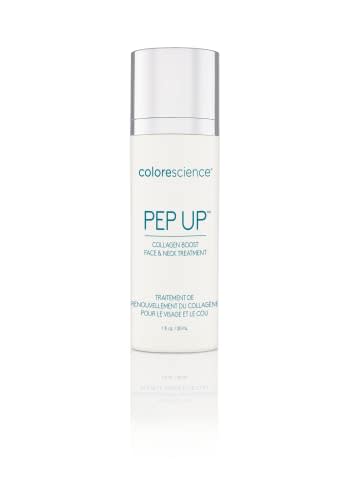
Colorescience PEP UP Serum $ at Amazon
Colorescience PEP UP Serum $ at Nordstorm
Colorescience PEP UP Serum $ at Skinstore
The Ordinary Azelaic Acid 10% Suspension
Garshick recommended this product for women who are pregnant because of how gentle it is. It contains azelaic acid, a retinol alternative often recommended to those with sensitive skin. Garshick noted that azelaic acid has been found to be good at addressing redness and softly exfoliating skin.
The Ordinary Azelaic Acid 10% Suspension
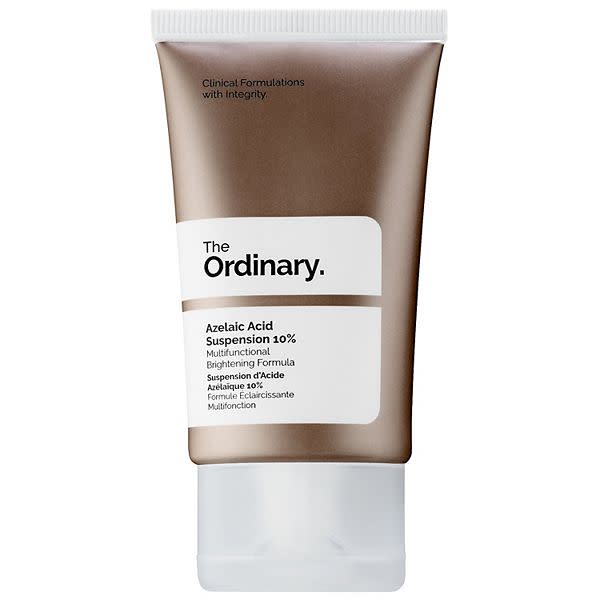
The Ordinary Azelaic Acid 10% Suspension $ at Sephora
The Ordinary Azelaic Acid 10% Suspension $ at Ulta
The Ordinary Azelaic Acid 10% Suspension $ at Target
Andalou Age Defying Rejuvenating Plant-Based Retinol Alternative Cream
This moisturizer is gentle and soothes skin, said Garshick. “It combines fruit stem cell complex, antioxidants and bakuchiol, a plant-based retinol alternative,” she said. “When used daily, it can help to reduce blemishes while also smoothing the skin texture.”
Andalou Age Defying Rejuvenating Plant-Based Retinol Alternative Cream
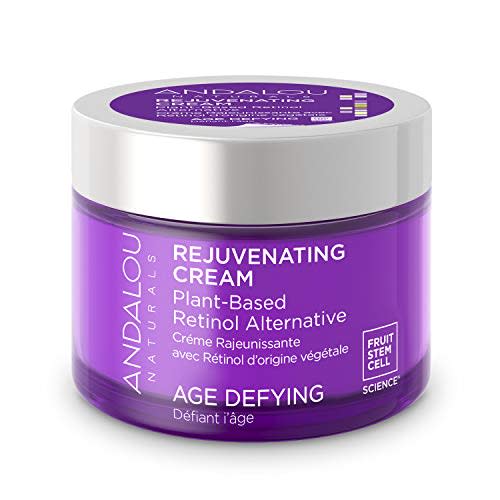
Andalou Age Defying Rejuvenating Plant-Based Retinol Alternative Cream $ at Amazon
Andalou Age Defying Rejuvenating Plant-Based Retinol Alternative Cream $ at Andalou
Herbivore Bakuchiol Serum
Both Marcus and Garshick Dr. Marcus and Dr. Garshick noted that this bakuchiol serum may reduce the appearance of fine lines and wrinkles while promoting hydration. Bakuchiol, a popular retinol alternative, is sourced from the babchi plant, a herb that is commonly used in Chinese medicine.
Herbivore Bakuchiol Serum
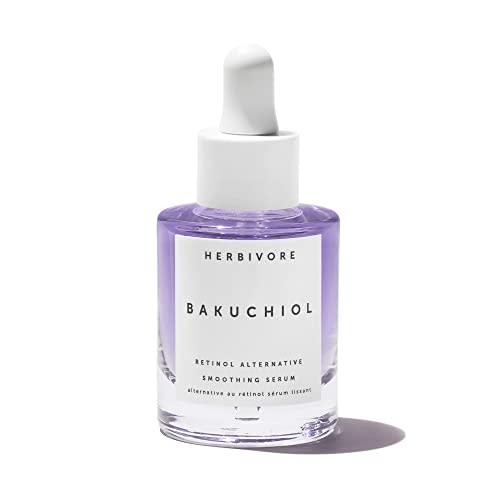
Herbivore Bakuchiol Serum $ at Amazon
Skinceuticals Retexturing Activator
This oil-free serum works for all skin types, said Marcus. It contains hyaluronic acid to hydrate skin, along with hydroxyethyl urea and an aminosulfonic acid compound both of which gently exfoliate to brighten skin tone, according to the brand.
Skinceuticals Retexturing Activator
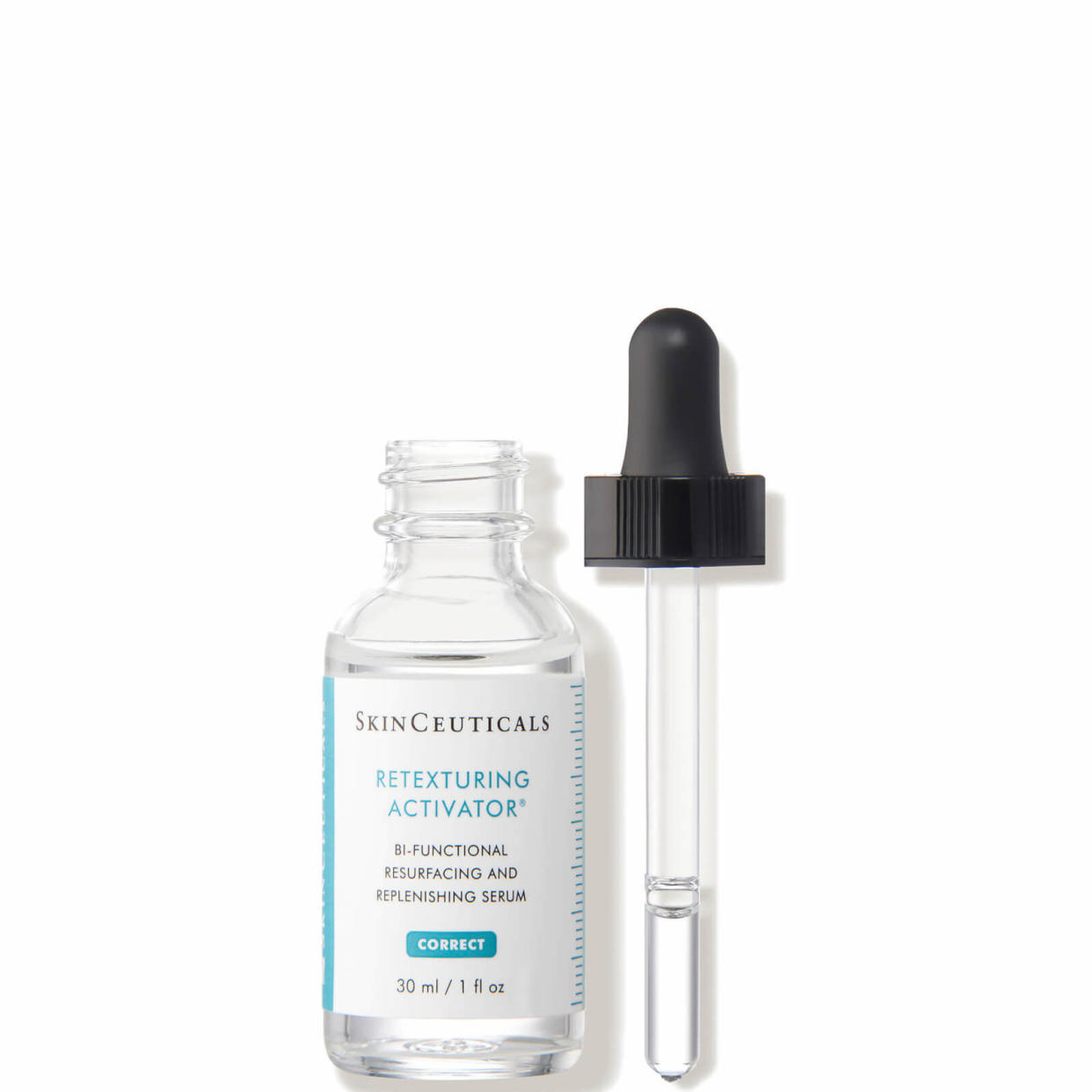
Skinceuticals Retexturing Activator $ at Dermstore
Skinceuticals Retexturing Activator $ at Skinstore
Glytone Enhance Brightening Complex
This complex combines azelaic acid and glycolic acid to address dark spots and uneven skin tone, according to Glytone. Our experts recommended this product to address both breakouts and pigmentation that commonly happen while a woman is pregnant or breastfeeding.
Glytone Enhance Brightening Complex
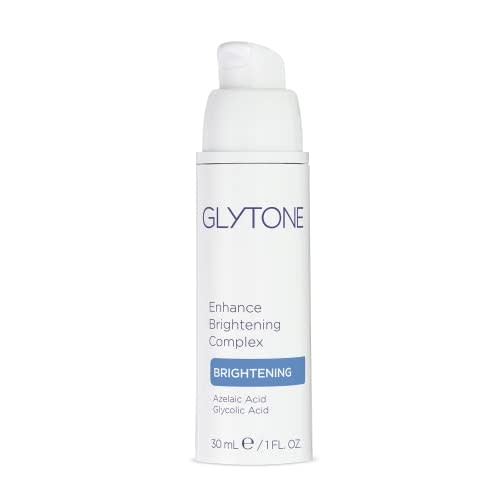
Ole Henriksen Goodnight Glow Bakuchiol Sleeping Creme
Marcus and Garshick liked that this night cream contains a blend of bakuchiol, glycolic and lactic acid. “These ingredients work together to help improve both texture and tone, potentially reducing the appearance of fine lines and wrinkles and addressing discoloration,” said Garshick.
Ole Henriksen Goodnight Glow Bakuchiol Sleeping Creme
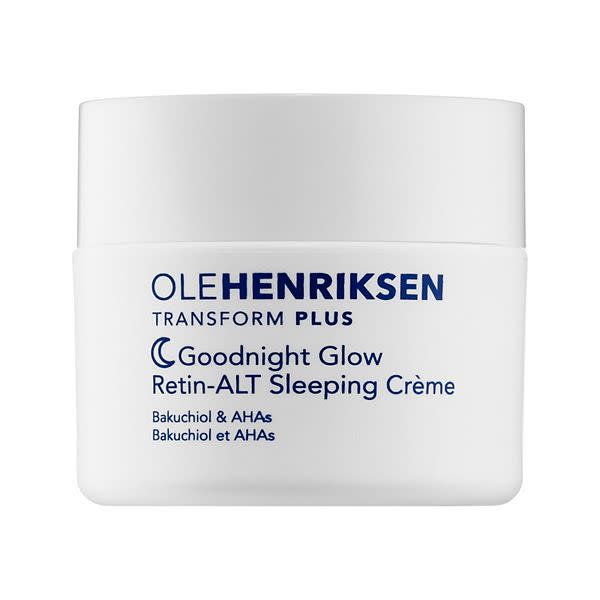
Ole Henriksen Goodnight Glow Bakuchiol Sleeping Creme $ at Sephora
Ole Henriksen Goodnight Glow Bakuchiol Sleeping Creme $ at Kohl's
The Inkey List Bakuchiol Moisturizer
Retinol alternative bakuchiol is a star ingredient in this moisturizer—which our experts said can minimize fine lines and even out skin tone. “It is formulated with sacha inchi oil and squalane, two ingredients that also help hydrate and nourish the skin,” said Garshick, who also noted that it is considered safe to use during pregnancy.
The Inkey List Bakuchiol Moisturizer
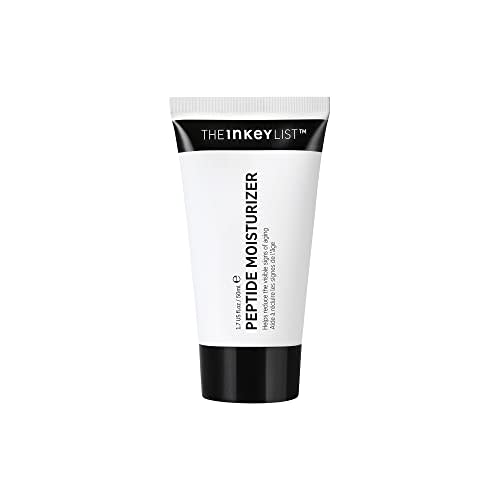
Naturium Azelaic Acid Serum
“Azelaic acid is commonly used in prescription medication for rosacea. This serum contains that ingredient and works to reduce bumps associated with rosacea as well as redness and inflammation,” said Garshick. “It is creamy and lightweight so it absorbs easily.” Garshick also noted that it contains niacinamide, which can be soothing.
Naturium Azelaic Acid Serum
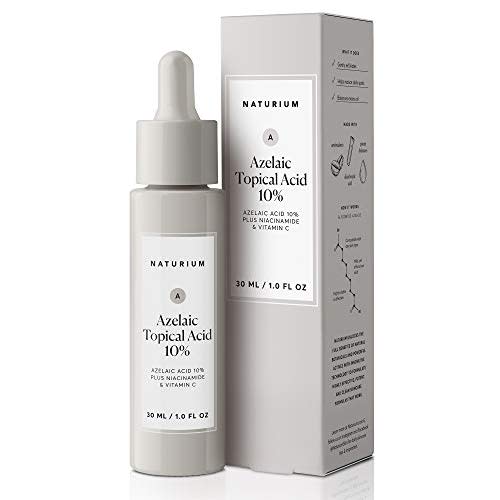
Naturium Azelaic Acid Serum $ at Amazon
Related: We gave the popular red light therapy tool a try for a month and reported the results.
How to shop for retinol alternatives
When it comes to looking for a retinol alternative, our experts noted that there are a few ingredients to look for that can replicate some of the positive effects of retinol and that tend to work well for those who need a gentler option. Because retinol can do so many things — from brightening to reducing the appearance of fine lines — the key is to think about which of those benefits you’re looking for. From there, you can choose the best retinol alternative.
What are the best retinol alternative ingredients?
Bakuchiol
“Bakuchiol is is known to increase cell turnover,” said Marcus. “It has a similar mechanism of action as retinol, but without any irritation.” The ingredient is derived from plants and Marcus said it can also improve skin tone and texture and diminish fine lines and wrinkles.
Peptides
Peptides are chains of amino acids and are considered to be building blocks of proteins — including collagen, which aids in keeping skin supple and plump. “When peptides are applied to the skin, they send a signal to the body to boost collagen production,” said Garshick. “When more collagen is produced it can help with sagging skin, reduce the appearance of fine lines and wrinkles and improve texture and elasticity.” The overall result: A more youthful appearance, said Garshick.
Alpha Hydroxy Acids
“Glycolic acid is an alpha-hydroxy acid that is derived from sugar cane and is known for its exfoliating benefits, helping to get rid of dead skin cells and brighten the skin,” said Garshick. “It can also reduce discoloration and improve the appearance of fine lines and wrinkles.” Other commonly used alpha hydroxy acids in skin care include mandelic acid and lactic acid, which do similar things.
Azelaic acid
“This dicarboxylic acid is naturally derived from a yeast known as malassezia furfur and is found in wheat, rye and barley — it is also part of the normal skin flora,” said Garshick. “It is an ingredient that is commonly recommended by dermatologists to those with particularly sensitive skin.” Azelaic acid can help to reduce redness, improve breakouts, address discoloration and gently exfoliate.
How should you use retinol alternatives?
Our experts advised that retinol alternatives should be incorporated into a skincare routine in the same way you would incorporate any other new ingredient – slowly at first, and then with increased use if your skin reacts well. To that end, Murad recommended a “patch-test” of any new products; you can apply a small amount of the new product to the inside of your arm before committing to using it on your face.
While retinol products can cause sensitivity and experts don’t usually recommend using them more than once a day, retinol alternatives are more gentle and can often be used morning and night.
Meet the experts
At Select, we work with experts who have specialized knowledge and authority based on relevant training and/or experience. We also take steps to ensure that all expert advice and recommendations are made independently and with no undisclosed financial conflicts of interest.
Dr. Howard Murad is a trained pharmacist, physician and an associate clinical professor of medicine at UCLA. He is the founder of Murad Skin care Inc
Dr. Marisa Garshick is a board-certified dermatologist in New York City and clinical assistant professor of dermatology at Cornell
Dr. Rebecca Marcus is a board-certified dermatologist specializing in medical, surgical and cosmetic dermatology
Why trust Select?
Lulu Chang has over a decade of experience writing for top publications and websites. Her work has appeared on Business Insider, Well+Good, Bustle and more. For this story, we interviewed dermatologists and asked them for their top retinol alternative recommendations. We also looked at dozens of products on Select reader favorite sites, looking for highly-rated products that met all of our expert’s requirements.
Catch up on Select's in-depth coverage of personal finance, tech and tools, wellness and more, and follow us on Facebook, Instagram and Twitter to stay up to date.
